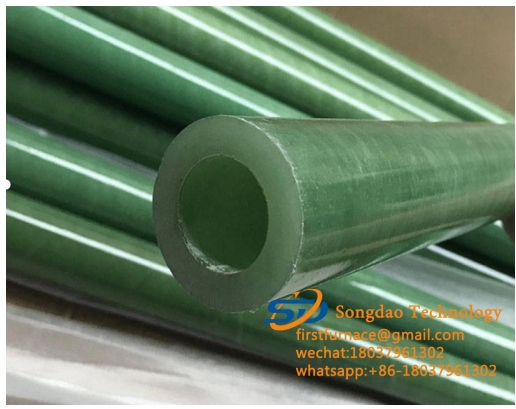- 12
- Feb
What are the properties of fiberglass tubes?
What are the properties of fiberglass tubes?
1. Upinzani wa kutu
The glass fiber tube has excellent corrosion resistance, and can resist the corrosion of various gas and liquid media such as acid, alkali, organic solvent, salt, etc. to varying degrees. It will never rust. According to the medium type and temperature requirements of the actual use occasion, o-phenyl, m-phenyl and vinyl can be selected.
2. Light weight and high strength
The glass fiber content of glass fiber tube is higher than other composite forming processes, so its longitudinal strength is equivalent to steel. The density of the round tube is only about a quarter of that of steel, and its specific strength is much higher than that of steel. The modulus of the round tube is lower than that of steel, usually only 1/7-1/10 of that of steel.
3. Kupambana na kuzeeka
The fiberglass tube adopts high quality thermosetting resin and fiberglass system. It is different from general thermoplastics. The normal service life of the product can reach 20 years. Anti-aging effect can be obtained by adding anti-ultraviolet agent and polyester felt.
4. Rahisi kudumisha
Fiberglass tubes are made by mixing pigments into resin. Product color can be adjusted arbitrarily according to customer requirements. It is not easy to fade, does not require paint maintenance, and has a self-cleaning effect.
5. Excellent electromagnetic properties
The glass fiber tube has good electrical insulation performance, no electromagnetic and sparks, and can be used in conductive hazardous areas, magnetic sensitive equipment and inflammable and explosive places.
6. Thermal properties
Fiberglass pipe is a kind of thermal insulation material. Its thermal expansion coefficient is much lower than that of plastics. Pultrusion has excellent mechanical properties at low temperature and will not melt at high temperature, but its strength and modulus will decrease to a certain extent at high temperature. The applicable temperature range of the round tube is generally -50 to 100 °C.

